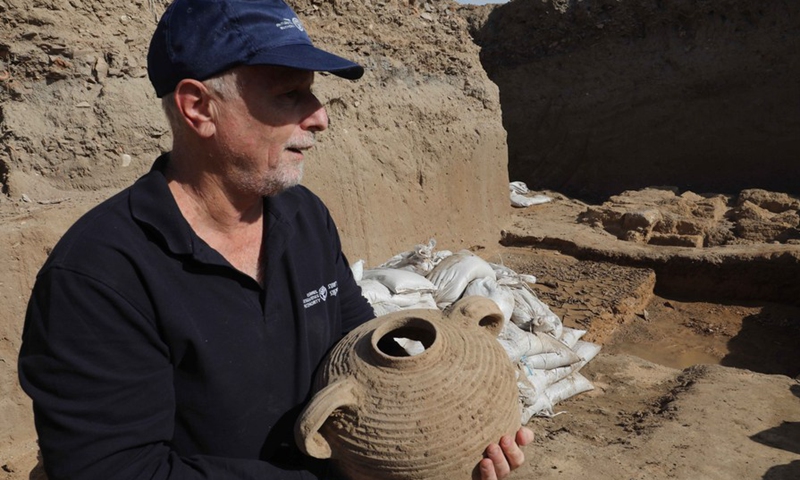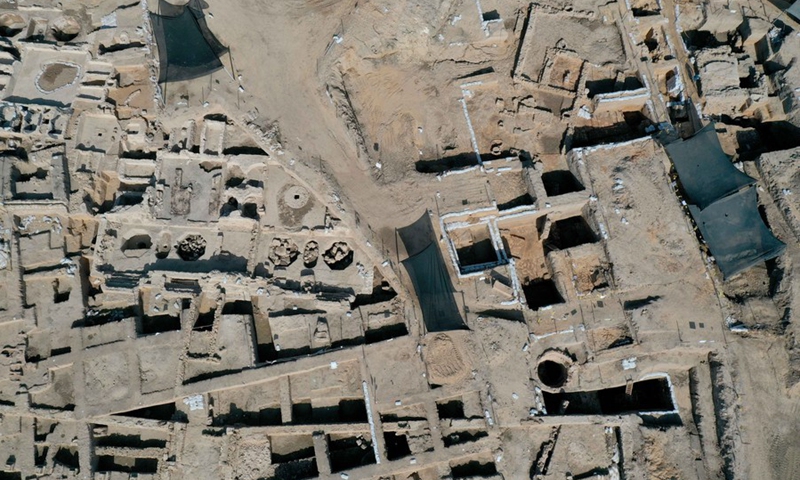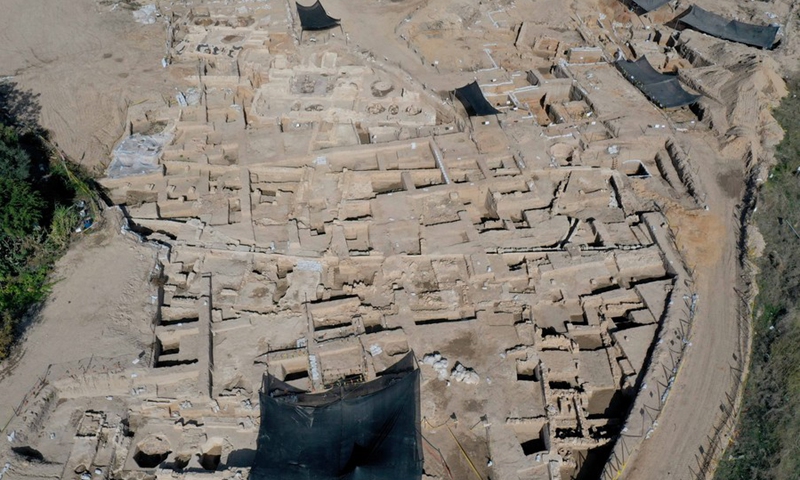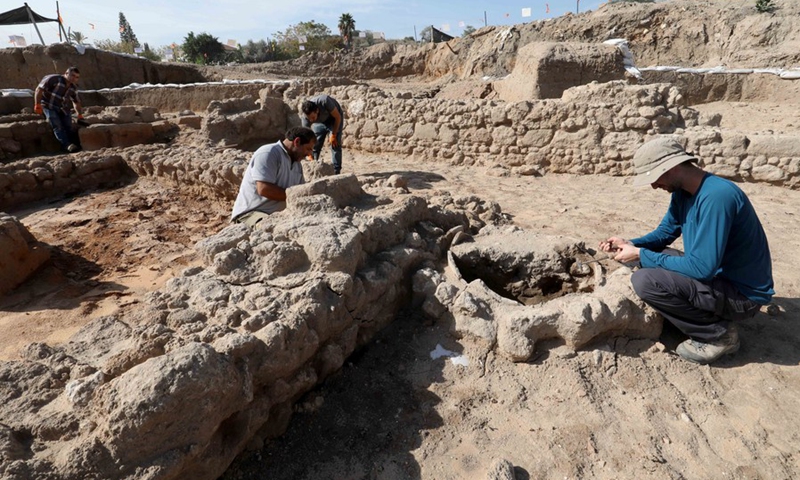
An archaeologist of Israel Antiquities Authority shows a pottery at an excavation site in the central Israeli city of Yavne on Nov. 29, 2021. (Photo: Xinhua)

Aerial photo shows an excavation site in the central Israeli city of Yavne on Nov. 29, 2021.(Photo: Xinhua)

Aerial photo shows an excavation site in the central Israeli city of Yavne on Nov. 29, 2021.(Photo: Xinhua)

Staff members of Israel Antiquities Authority work at an excavation site in central Israeli city of Yavne on Nov. 29, 2021.(Photo: Xinhua)
Israeli archaeologists have discovered remains of an industrial building and a nearby wide cemetery, both dating back to about 1,900 years ago, the Israel Antiquities Authority (IAA) said Monday.
This is the first building discovered in the ancient central city of Yavne from the time of the Sanhedrin, which was the supreme legislative Jewish assembly.
It went into exile in Yavne after the fall of Jerusalem by the Romans some 2,000 years ago.
The building contained fragments of chalk stone cups, clear evidence that its occupants were observing Jewish laws of ritual purity, the researchers said.
The cemetery was located about 70 meters from the building, with dozens of tombs carefully spaced out at set distances.
Some of them are coffins or sarcophagi, which are made mostly of stone except for one made of lead.
The researchers assessed that these are the tombs of the city's Jewish community, and the most elaborate ones may belong to the Jewish sages of Yavne.
The team also discovered 150 glass phials that were placed on top of the tombs, probably used to keep precious liquids such as fragrant oils.
"The findings are evidence of the life and death of Yavne's inhabitants at the time of the Sanhedrin, where the foundations of Judaism as we know it were laid," the researchers concluded.
